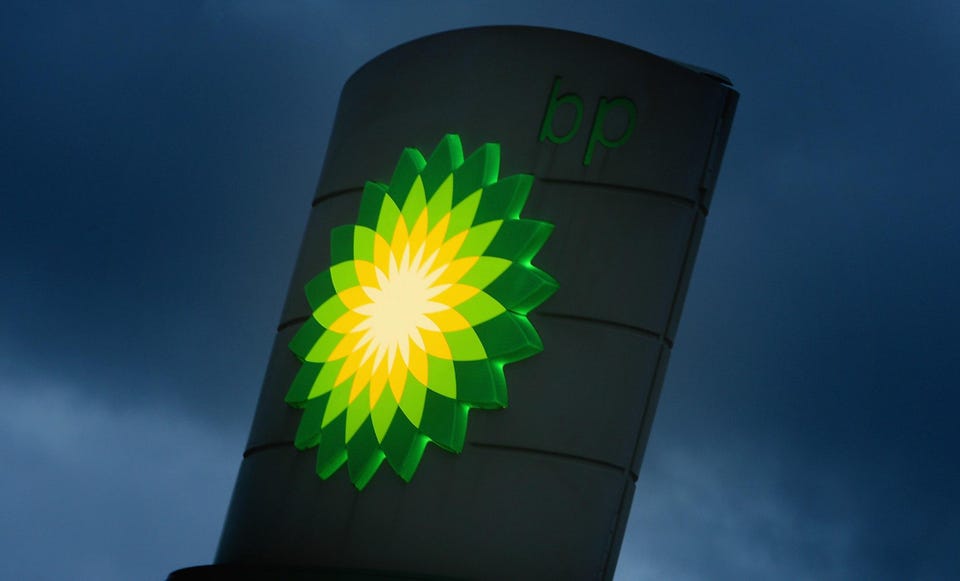Forbes Business Energy Not So Fast, Euro Major BP Reconsiders Pace Of Energy Transition Dan Eberhart Contributor Opinions expressed by Forbes Contributors are their own. Dan Eberhart is CEO of Canary, LLC. Following Feb 12, 2023, 01:52pm EST | Press play to listen to this article! Got it! Share to Facebook Share to Twitter Share to Linkedin BP announced it had reconsidered its ambitious zero carbon goals after rising oil prices delivered .
. . [+] strong second-quarter profits.
(Photo by Matt Cardy/Getty Images) Getty Images How much can an overreliance on environmental, social, and governance (ESG) criteria hobble an energy company’s investment strategy? BP’s announcement last week that it was reconsidering the pace of its plans to transition to clean energy should be a cautionary tale. None of the titans of the oil industry had a more aggressive energy transition strategy than Euro major BP, which famously rebranded itself in 2001 from “British Petroleum” to “Beyond Petroleum. ” In 2020, CEO Bernard Looney announced BP would cut emissions by as much as 40% by 2030 and diversify away from traditional fossil fuel production faster than any of its peers in the quest to reach net zero emissions.
The oil major vowed to shift its investments to renewables and low-carbon projects to satisfy socially conscious investors focused on climate change. Now it appears BP overpromised. After posting record profits last quarter thanks to rising oil prices, Looney announced BP was scaling back its energy transition plan to include an increase in oil and natural gas production.
While investors continue to embrace the ESG trend, social concerns about carbon dioxide emissions have been trumped by investors’ overriding demand for strong financial returns. It’s funny what the smell of money will do to a company’s resolve. MORE FOR YOU Why The Rock’s Social Media Muscle Made Him Hollywood’s Highest-Paid Actor New York’s Best New Building Is The Last New Building In Brooklyn Heights The Best Valentine’s Day Flowers That Will Arrive Fast And Fresh At the end of the day, market realities are a bigger influence on BP’s investment strategy than the culture wars.
Increases in BP’s fossil fuel investments will now match those in the low-carbon space, and the pace at which BP will reduce the production of oil and gas will slow – with output expected to be 25% lower in 2030 from 2019 levels. CEO Looney told investors that the expected profit margin for renewable projects was roughly 6% to 8%, compared with up to 20% from oil and gas investments. The fact is that BP’s rush to embrace “socially conscious” investing held back its stock price significantly.
That’s why there was an 8% surge in BP’s share price after Looney’s announcement. The shift reflects the new market reality since Russian President Vladimir Putin attacked Ukraine and decided to use his country’s energy supplies as a weapon against Europe. After being the favorite whipping boy of politicians and environmental NGOs, BP and other traditional energy majors are being courted by governments worldwide, asking them to boost oil and gas production.
That should be music to investors’ ears since producing hydrocarbons is what these companies do best. And lately, it has been an extremely lucrative business for the majors and their shareholders. The oil industry worldwide generated around $1.
4 trillion in free cash flow in 2022. Low levels of debt and robust prices mean cash flow will continue to be strong through 2023. The sector is at the beginning of a multi-year upcycle that promises unprecedented profits due to the chronic underinvestment in production of years past and the outlook for global supplies to remain troubled by conflict.
Don’t be too hard on Looney for chasing profits at the expense of climate goals. BP could not afford to ignore the direction the market was headed. Shareholders would have handed Looney his head and sent him packing.
The Euro major’s trailblazing transition plan had already made it an underperformer among oil stocks. While U. S.
majors ExxonMobil XOM and Chevron CVX – companies far more focused on core oil and gas operations than their European peers – posted share gains of as much as 50% over the past year, BP saw a modest growth of 10%. BP needed a way to narrow the valuation gap with its competitors. The solution, slow down the low-carbon shift.
That a Euro major made this move, given the continent’s continued commitment to cutting carbon, should signal that energy security – and profits – will take precedence when it comes down to brass tacks. After all, BP is giving consumers what they want – abundant and affordable energy. Suddenly, the much slower transition strategies of U.
S. majors and Middle Eastern national oil companies make much more sense. Those companies are focused on decarbonizing their oil and gas operations by investing in new low-carbon supplies and technologies like carbon capture and hydrogen rather than curbing the production of hydrocarbons.
With the threat of an energy crisis looming over Europe – and much of the rest of the world – it’s only a matter of time before other Euro majors follow BP’s lead. Follow me on Twitter or LinkedIn . Check out my website or some of my other work here .
Dan Eberhart Editorial Standards Print Reprints & Permissions.
From: forbes
URL: https://www.forbes.com/sites/daneberhart/2023/02/12/not-so-fast-euro-major-bp-reconsiders-pace-of-energy-transition/



